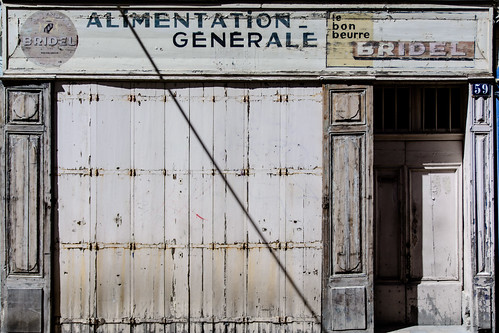by Chris Bertram on March 25, 2022
A couple of days ago we had an online get-together of many of the Crooked Timber writers. Although we’ve been around for nearly nineteen years, this is the first time this has happened, and it probably never would have but for the pandemic and the possibilities that Zoom has opened up. Some of us were approaching our bedtime and others had to make a really early start as participants came from Brisbane, Singapore, Exeter in England, the south of France, the Netherlands, Switzerland, and various parts of the US. We should do it again soon.
One thing we discussed was how to improve the volume and variety of our contributions. Things have changed a lot since 2003, not least the variety of channels of communication, including social media. Many of the people who read Crooked Timber tell us what they like and don’t like using Twitter, Facebook, email and the like. On-site comments, on the other hand, are not what they were. Though we retain a small cadre of dedicated commenters, the quality of discussion is not always that great and there are too many drive-by and borderline insulting interventions from anonymous accounts. Figuring out how and whether to respond to a misdirected comment can be a significant overhead for writers who can’t know whether the original engagement was in good faith. So we’ve decided to change our default to having comments turned off, with writers having the option to turn them on if they like. Open threads and “Twigs and Branches” will have comments enabled, but we will not tolerate people using open comments on one focused post to comment on a post where the writer decided not to open them. Long-term readers, feel free to show your appreciation (or not) via those other routes. Comments on this post are open [now timed out].
by Chris Bertram on March 20, 2022
by Chris Bertram on March 13, 2022
by Chris Bertram on March 11, 2022
In Ukraine people, mainly women and children, are leaving their homes. This means leaving, probably forever, the private spaces in which they have constructed lives. It means leaving carefully planned gardens, or collections of books or objects, of projects of home decoration on which thought and labour was expended, of knives, sieves, pots and cookery books. For children it means leaving all those toys and books that can’t be carried. In short all the everyday things that people make from their lives. It means ruptures, perhaps permanent, in personal friendships and acquaintances, with those left behind to fight, with playmates, with cousins. It means the loss of familiar landscapes with their distinctive weather and their animals and plants. And then a trudge through danger and the possibility of instant death to put oneself at the mercy of strangers, as an object perhaps of their solidarity, but also of their pity. Paths trodden by other refugees, by Palestinians, Syrians, Afghans, Iraqis, Sudanese and Somalis in the recent past, by many in Ethiopia right now.
[click to continue…]
by Chris Bertram on March 6, 2022
by Chris Bertram on February 28, 2022
Thousands of people, at this stage mainly women, children, and the elderly, are fleeing Ukraine and seeking safety in neighbouring countries. The European Union seems to grasp what is required and is offering them sanctuary; UK ministers are briefing the media that they are doing things but aren’t doing very much. People crossing border to neighbouring countries from conflict zones is what usually happens in circumstances like this. This is why the vast majority of the world’s refugees are in countries bordering Syria, Iraq and Afghanistan. When countries like Pakistan, Iran and Turkey take in refugees from war they are partly just accepting the inevitable; they are also, to some degree, sensitive to their own populations who (at least initially) may feel an obligation to people who are like themselves in religion and culture.
The European Union (and the UK) have a pretty bad recent record when it comes to refugees. They have put in place measures to prevent people from escaping their tormentors and have paid dubious regimes such as Libya to act as buffer zones and prisons. While some European countries such as Germany and Sweden can point to things they can take pride in during the Syrian war, attempts to get others such as Poland and Hungary to accept refugees failed. Denmark has pursued a zero-refugee policy, with the goal of sending people back to places like Syria. The UK is currently introducing legislation to criminalize refugees and the current Home Secretary, Priti Patel, would like to follow the Australian model of sending them off to remote locations. Ascension Island in the Atlantic has been mooted by the pro-Tory think-tank Policy Exchange.
[click to continue…]
by Chris Bertram on February 27, 2022
by Chris Bertram on February 20, 2022
by Chris Bertram on February 13, 2022
by Chris Bertram on January 16, 2022
by Chris Bertram on January 9, 2022
by Chris Bertram on January 4, 2022
The Africa Cup of Nations 2021 (postponed) is about to start, with Cameroon v Burkina Faso on Sunday. As a Liverpool fan, I’m torn between Egypt and Senegal, although since I’m an admirer of the Chelsea goalkeeper Edouard Mendy who went from a year on the dole in France to the very top levels of football, and displaced the incredibly expensive Kepa). So, on balance it is Mane-Mendy Senegal for me. Tips? Opinions?
by Chris Bertram on December 30, 2021
We watched Don’t Look Up last night. Obviously satire, obviously really about our inability to act against climate change, but also about the comical inabilty of the United States to play the role it has arrogated to itself. Faced with a threat to the planet, the scientific Cassandras are blown off by a President focused on the short-term political narrative and, when they try to tell the media, relegated behind pop-trivia, goaded by lightweight news anchors, and ridiculed on twitter. When the adminstration does finally wake up to the threat from the meteor, it sabotages its own efforts in order to appease a tech-solutionist multimillionaire donor, who spies a chance to profit, with disastrous results.
As a film, it owes a lot to Dr Strangelove, with Mark Rylance, playing a kind of composite Jobs/Bezos/Musk/Thiel reprising Peter Sellers’s Werner von Braunish character and Ron Perlman taking on the Slim Pickens role. But it is the politics that interest me here, because the film accurately and savagely destroys the claim made by and for the United States of America to be a kind of universal state, able and entitled to act on behalf of humanity as a whole. A claim that has made at least since the Second World War and which continues to be implicit in the discourse of every centrist columnist at the New York Times, whose “we” is ambiguous between the US national interest and the world in general. It is, for example, in the name of this ambiguous “we” that pro-war shills are currently claiming that the US has the right, and possibly the duty, to attack Iran, whereas the US reserves the right to deny legitimacy to Russian or Chinese attacks on other countries. Team America World Police, as it were.
[click to continue…]
by Chris Bertram on December 19, 2021
by Chris Bertram on December 12, 2021









